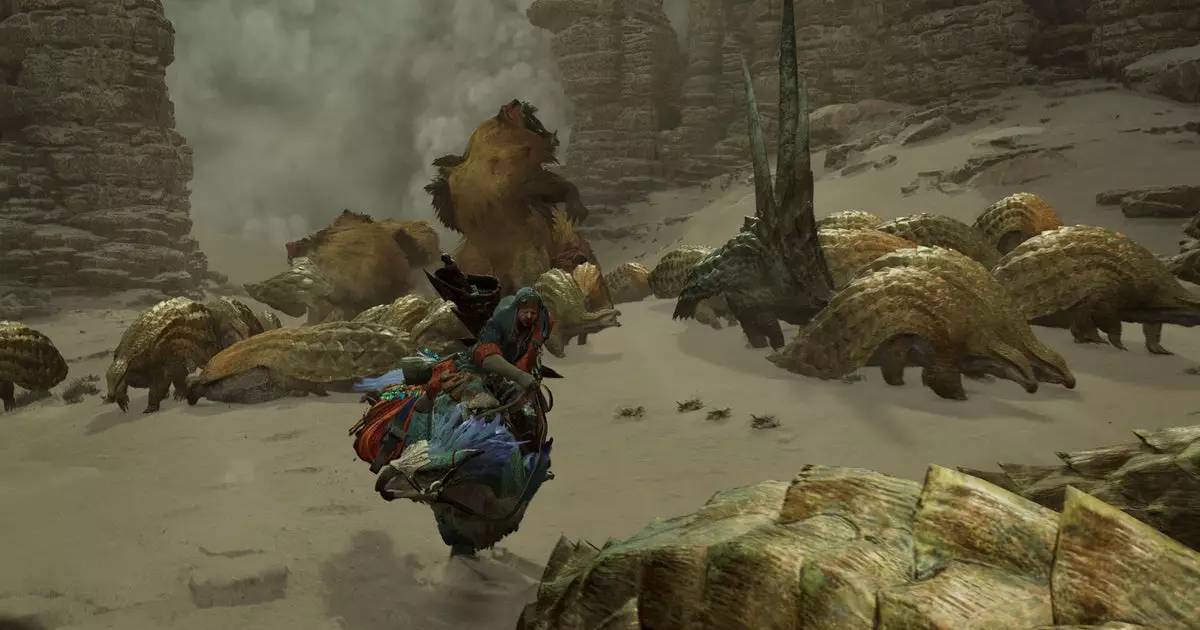The anticipation surrounding Monster Hunter Wilds has reached a fever pitch, especially following the popularity of its beta phase. Players are eager to stampede into this latest offering from Capcom, but firsthand experiences reveal a layer of complexity beneath the vibrant surface. This article delves into one of the most critical aspects of gameplay: combat mechanics, specifically examining the concept of “hitstop,” a factor that could profoundly impact player satisfaction.
Upon entering the Monster Hunter Wilds beta, players were greeted not just with grandiose beasts and lush environments, but also an enticing character customization feature. Spending time fine-tuning one’s character, or in this case a feline companion, highlights the personal investment players place in their avatars. However, this initial endeavor can divert attention from the core mechanics of the game. While creating a unique character adds to immersion, it can lead to shallow engagement with the more intricate combat systems that Monster Hunter is celebrated for.
At the heart of any action game is combat, and in the Monster Hunter series, the weight of each attack is crucial. Hitstop is an animation freeze that occurs at the moment of an attack landing, designed to give players a sense of power and heft. The longer the hitstop, the more gratifying the impact feels. In previous iterations, such as Monster Hunter World and Rise, this technique enriched the experience. However, during the Wilds beta, reports surfaced indicating a stark reduction—or complete removal—of hitstop from several key weapon types, significantly altering the combat’s tactile feedback.
The immediate implications of reduced hitstop in Monster Hunter Wilds are contestable. Comparisons drawn in social media clips, particularly by user Blue Stigma, illustrate that the once exhilarating sensation of delivering a powerful blow could now feel underwhelming. For example, the overhead swing of the switch axe, which historically delivers an engaging impact feels more like a mere flick in the beta, with no frames of hitstop to emphasize its potency. This fundamental change could lead players to feel less engaged, transforming what should be an adrenaline-pumping experience into one that feels flat and unsatisfactory.
The Community’s Mixed Reactions
Player feedback has been decidedly mixed in response to the combat adjustments in the beta. Some veterans of the series have expressed disappointment, voicing concerns that the recent changes strip away the very essence that made Monster Hunter titles so appealing. The question arises: How could a series renowned for its deep combat mechanics stumble in what many consider its flagship feature? For newcomers, however, the combat may still feel fresh and thrilling, creating a rift in the community’s overall assessment of the game’s advancements.
Technical Considerations and Potential Solutions
With the beta offering a snapshot rather than the final product, it’s important to consider that developers might still be finetuning these mechanics. If the removal of hitstop was a design choice aimed at streamlining play, revisiting this aspect might prove essential. In earlier games, the feedback given by hitstop contributed significantly to player immersion—creating vibrations that resonate through both controller and psyche. Future updates could see Capcom addressing these concerns, possibly reinstating some degree of hitstop to appease long-time fans while ensuring new players enjoy a captivating experience.
As players eagerly await the full release of Monster Hunter Wilds, discussions surrounding combat dynamics will undoubtedly shape expectations and experiences. While character customization features delight at first glance, they cannot overshadow the fundamental mechanics that create thrilling gameplay. If Capcom listens to community feedback and refines the combat experience, Monster Hunter Wilds has the potential to elevate itself to new heights, delivering both the excitement of the hunt and the satisfaction of effective combat. Ultimately, how this beloved franchise navigates this crucial transition remains to be seen, but the conversation has certainly begun.


Leave a Reply